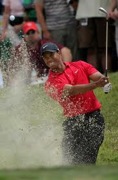 Is there a limit to what is humanly possible? Are some goals simply unobtainable? So much so as to be demotivating?
Is there a limit to what is humanly possible? Are some goals simply unobtainable? So much so as to be demotivating?
If you agree, then you are a believer in Galton’s Wall, named for Sir Francis Galton, who proposed in his 1869 book “Hereditary Genius,” that an individual could progressively improve until he hit a wall, beyond which “he cannot by any education or exertion overpass.”
Does Galton’s Wall exist? It certainly does if you believe it does. We fail at 100% of the things we do not attempt and likewise fail at the vast majority of things we half-heartedly attempt. When we become expert at something, our performance frequently plateaus. We often think that plateau marks the upper limits our natural ability, the best we can do is simply the best we can do.
K. Anders Ericsson, a psychology professor at Florida State University and author of the article, “Exceptional Memorizers: Made, Not Born,” begs to differ. Ericsson and his colleagues have repeatedly found that with the right kind of effort, it’s rare that we cannot push the limits of our performance boundaries. It seems Galton’s Wall often has much less to do with our innate limits than with what we consider an acceptable level of performance. In other words, our limits are more self-imposed then aught else. We cease to look for new solutions, new ways, therefore cease to find new paths.
Ericsson and his colleagues found that top achievers typically follow the same general pattern. They develop strategies for going beyond plateaus, beyond normal limits, by doing three things we might call “Deliberate or Intelligent Practice” (see “Talent is Overrated” by Geoff Colvin).
1. Focus on specific areas of their technique, generally problem areas (Tiger Woods practices specific golf shots others view as impossible, such as dropping golf balls into a sand trap, stepping on them, and then practicing these shots until he has mastered them.)
2. Stay goal oriented: Track your performance religiously, have improvement plans and targets for specific areas, notice what works, try new things, observe results. To improve, we have to constantly push ourselves beyond where we think our limits lie and then pay attention to how and why we fail.
3. Get immediate, outside, knowledgeable feedback on performance.
Here are some examples:
– Amateur musicians tend to spend their practice time playing music, whereas pros tend to work through tedious exercises or focus on difficult parts of pieces.
– The best ice skaters spend more of their practice time trying jumps they land less often, while lesser skaters work more on jumps they’ve already mastered. Regular practice simply isn’t enough.
Obviously, going beyond Galton’s Wall is not easy, which is why so few do. And so many prefer to choose to turn their backs and mutter that some goals are simply unobtainable.
(I’m indebted for much of this post, including some direct quotes, to “Secrets of a Mind-Gamer,” by Joshua Foer, The New York Times, February 20, 2011.)
Closing quotes:
“If you limit your choices only to what seems possible or reasonable, you disconnect yourself from what you truly want, and all that is left is compromise.” – Robert Jordan Fritz, author, composer, filmmaker, management consultant
“Don’t believe what your eyes are telling you. All they show is limitation. Look with your understanding, find out what you already know, and you’ll see the way to fly.” – Richard Bach, author of “Jonathan Livingston Seagull”
“The challenge of life is to know your limits but never except them.” – Unknown


0 Comments